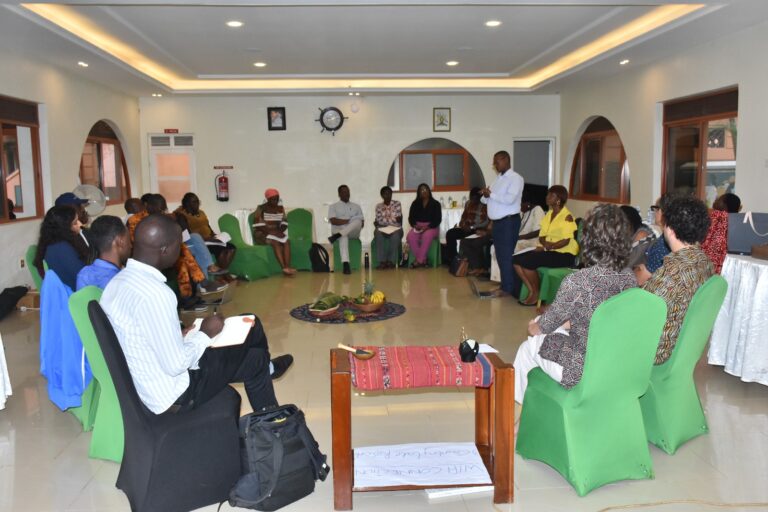Representatives from the agroecology sector across Africa gathered in Entebbe this week at the Country Lake Resort Garuga to initiate a new stage of a campaign that champions the production and consumption of native African foods.
At this meeting, participants developed a strategy for “Transforming the African Food System to Sustainability” initiative, also referred to as “My Food is African.”
Charles Olweny Mulozi, who serves as the Advocacy and Campaign Coordinator at AFSA, outlined the campaign’s three-year agenda, which includes rallying African citizens “to demand policy reforms that promote production of healthy and culturally appropriate foods.”
A key component of this initiative is to engage with governments and policy creators to advocate for policies that are conducive to agroecology.
Mulozi emphasized the importance of government support for large-scale cultivation of indigenous foods to protect the environment from “toxic agricultural chemicals” and to enhance Africa’s competitiveness in agricultural exports, particularly in comparison to GMO food exports from North America and Europe.
The “My Food is African” campaign operates in 9 African countries under the Alliance for Food Sovereignty in Africa (AFSA), with backing from the Swedish International Development Cooperation (SIDA). Within Uganda, Pelum Uganda, an AFSA network member, is implementing the campaign.
Josephine Akia Luyimbazi, the Country Coordinator for Pelum Uganda, spoke about the critical necessity for Uganda to return to traditional food production and consumption patterns. She noted a troubling trend among the youth towards fast and processed foods, which overlooks the nutritional and cultural value of indigenous foods. Through efforts like the “Know What You Eat” campaign, Pelum Uganda aims to boost consumer awareness about the benefits of native foods.
Additionally, Pelum Uganda is contributing to the national agroecology strategy that emphasizes the production of local foods and is providing feedback for the National Organic Agriculture Bill, facilitating the policy’s enactment.
AFSA General Coordinator, Million Belay, brought attention to the pressing concerns of environmental degradation and health issues due to industrial agricultural practices in Africa. He underscored the necessity for immediate discussions on the future of Africa’s food systems in light of potential hunger, malnutrition, diseases, and climate challenges.
Meanwhile, Mrs. Ayele Kabede, SIDA’s Program Manager for Regional Development Cooperation in Africa, covering the Environment, Climate, and Energy sectors, revealed that the campaign’s scope across the 9 African nations includes advocating for a comprehensive food system framework. In addition, case studies from 6 African countries will be created to bolster advocacy and campaign efforts.
Kabede questioned the current trajectory of food consumption and the loss of cultural practices associated with food preparation and consumption, seeking to draw attention from policymakers and the general populace to these critical issues.

